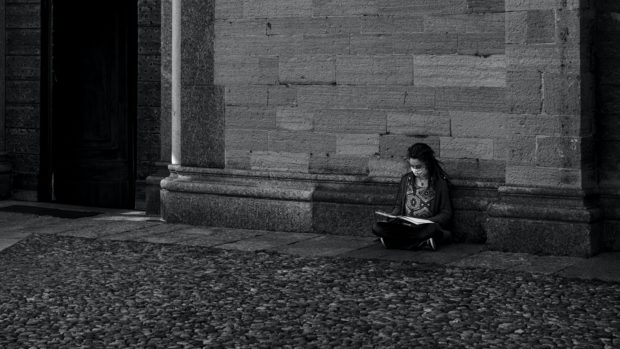You have no items in your cart. Want to get some nice things?
Go shopping
The pandemic has fundamentally reconfigured the shape of our lives – both public and personal. Masks in place, we navigate the pandemic-hit world tentatively, alternating between panic and hope, despair and dreams, our eyes scanning the horizon for a vaccine and a glimmer of reassurance. It’s too soon to gauge the extent to which this season of uncertainty affects our imagination. No doubt novels and poems and paintings will be born of this churning. No doubt songs will be sung, and symphonies composed. Stories seeped in the heartbreak and grief of this time will be told. Novels that probe the depth of our despair and the resilience of the human spirit are in the works. But which aspects of this tumultuous time will they highlight? What new forms will writers and artists forge to contain the enormity of this experience? The answers are not within our reach right now.
One thing we do know for sure at this point is that people across the world have started to spend more time reading since the pandemic descended upon us. The lockdown(s) have spared many the daily commute to work, freeing up some time to read. Being a writer, I’m delighted to hear this. I cheer the news heartily. The more people read the more reason for us writers to keep writing. Reports from several countries have caught my attention. All of them agree that people – across continents and cultures – are reading more than usual.
So, what kind of books are people reading? Are their picks deeply personal? To what extent does the collective dilemma we’re facing at the moment influence our reading choices? Has there been a radical shift in people’s reading preferences in the time of the pandemic? Since human beings are complicated entities with widely differing individual needs and preferences, it would be absurd to expect an easy, one-size-fits-all answer. But I’ve been scanning recent surveys and news reports in search of discernable patterns.
My search threw up some interesting discoveries. For instance, in Europe, during the first lockdown, people turned to “pandemic books” like Albert Camus’ The Plague. The current phase has readers opting for books on Greek mythology and science fiction, which whisk them away to the past or propel them headlong into the future, both offering guaranteed escape routes from the chaotic present. Some readers connect their choices to the level of panic they are experiencing. Their choices during the initial phases of the pandemic when panic levels were at an all-time high were starkly different from the books they turn to in the current phase, where the needle of anxiety has moved to a less frantic, but persistent zone.
Many people found comfort in the classics. Novels such as Middlemarch, War and Peace, Anna Karenina, Madame Bovary, One Hundred Years of Solitude, Crime and Punishment, and Don Quixote called out to them. When Chinese-American author Yiyun Li launched #TolstoyTogether, an online War and Peace reading group, 3,000 members from 6 continents flocked in. The group planned on reading 12-15 pages of Tolstoy’s masterpiece daily and get to the end of the novel in three months.
To some, the classics offered the reassurance of the familiar. They sought out old favourites, savouring every word, taking in the wealth of insights these timeless works contain. Love and loss, grief and sorrow, desire and duty – the classics have much to say on the questions that continue to haunt our lives. Some readers turned to the classics because these were the books – the literary tomes – they had always meant to read, a promise they had made to themselves and never kept. The classics were a challenge, a mountain they had finally found the time to scale. Many found the experience richly rewarding. Epiphanies were in store. Moments of grace and illumination galore.
It’s not all Flaubert and Tolstoy and Woolf of course. Thrillers, self-help books, cookbooks, books on philosophy, and topical subjects such as isolation, race, and politics are all in demand. Regardless of genre or type or subject, the good news is that people have rediscovered the pleasure of reading. They are reading to be entertained and to be comforted, to open up their hearts, to slip into another’s shoes and to see and touch and taste the world in fresh ways, to improve their skills, to relish wit and wisdom, to surrender to the magic of words.
The anxieties the pandemic have inflicted on us do weigh us down. It shortens attention spans. It interferes with our focus and slows us down, which means that even though we may spend more time reading the volume we read is reduced. But what does it matter if we read two books or three? It’s not a numbers game or a productivity contest. The value doesn’t rest on the tally because reading is its own reward.

About Vineetha Mokkil
Vineetha Mokkil is the author of the short story collection, "A Happy Place and Other Stories" (HarperCollins). She received an honorary mention in the Anton Chekhov Prize for Short Fiction 2020 and was shortlisted for the Bath Flash Award in 2018. Her fiction has appeared in Gravel, the Santa Fe Writers' Project Journal, Cosmonauts Avenue, Quarterly Literary Review Singapore, and "The Best Asian Short Stories 2018" (Kitaab, Singapore).




